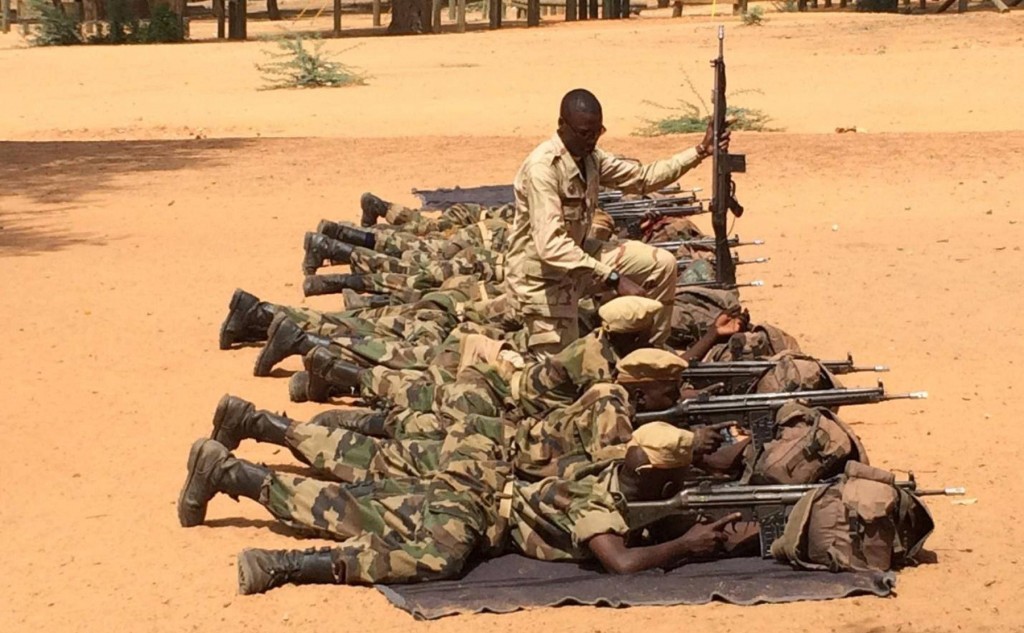Developing- Operation Iran: The Pentagon is Deploying Troops to Saudi Arabia

“The Persian Gulf Likely to Witness More Dangerous “Incidents” in the Coming Months”
The Pentagon is deploying troops to Saudi Arabia in order to defend the U.S. and its allies from “credible threats.” It is important to note that there are already U.S. troops inside Saudi Arabia, contrary to official reports. U.S. troop levels inside Saudi Arabia have fluctuated since Operation Desert Shield in 1990, but have never reached zero. The Saudi regime understands that the presence of Western troops is a sensitive matter with the Saudi public, so the House of Saud and the Pentagon together pretend there is no permanent U.S. military presence within the kingdom. Corporate media go along with the deception.
U.S. war corporations have maintained a more open presence in the kingdom. The Saudi regime is one of the biggest customers of the U.S. war industry. Executives, field service representatives, maintenance personnel, and instructors from Boeing, Lockheed Martin, Northrop Grumman, and other corporations rotate through the kingdom regularly. Most major war corporations have offices in Riyadh. Raytheon’s Raytheon Saudi Arabia is the gold standard, helping the Saudis build up their own industrial capacity. From Lockheed Martin helicopters to General Dynamics bombs, the products of U.S. war corporations have been on display murdering thousands in the Saudi-led, U.S.-backed war against Yemen. U.S. war corporations such as DynCorp, Northrop Grumman, and Rockwell Collins have been instrumental in training the Saudi National Guard, which protects the House of Saud and crushes pro-democracy protests whenever they crop up.
The deployment of more U.S. troops to Saudi Arabia takes place at a tense time in the Persian Gulf. The Pentagon has launched multiple cyber-attacks against Iran, dating back to Operation Olympic Games during the Obama administration. After withdrawing from the Joint Comprehensive Plan of Action in 2018, the Trump administration imposed ruthless sanctions on Iran. Now the Iranian economy is in crisis; the U.S. sanctions are devastating the average Iranian. In May and June of this year, undisclosed parties sabotaged tanker ships in the Gulf of Oman. D.C. blamed Tehran. Tehran vehemently denied being behind the sabotage. In June, the Iranians shot down a Northrop Grumman RQ-4 drone operated by the U.S. Navy. (Raytheon, L3, and other war corporations produce products for the RQ-4. Multiple war corporations cooperating on a single platform is common practice.) Then, at D.C.’s behest, London committed an act of piracy and seized an Iranian oil tanker on 4 July. Iran has since seized a U.K.-flagged oil tanker.
On Thursday, 18 July, U.S. President Donald Trump announced that a U.S. Navy ship, the USS Boxer, had disabled an Iranian remotely piloted aircraft, or “drone.” Iran has denied losing any drone. If the incident actually occurred, the crew of the Boxer would have used an electronic warfare system built by Raytheon to disable the drone. Many U.S. war corporations such as General Dynamics, Lockheed Martin, and Northrop Grumman currently sell technology and upgrades for the Raytheon electronic warfare system. These corporations teach us about the nature of the U.S. war industry. Lockheed Martin, for example, curries favor with Capitol Hill by spreading work on the electronic warfare system across congressional districts spanning Alabama, Massachusetts, Minnesota, New Jersey, New York, and Pennsylvania. This strategy—all large war corporations do it—prepares the terrain prior to a corporation sending lobbyists or campaign donations to Capitol Hill. Smaller corporations, such as Antenna Associates of Brockton, Massachusetts, have sold antennae used on the electronic warfare system. The Pentagon engages small businesses in order to garner good media coverage while militarizing the U.S. economy. Small businesses flock to the Pentagon because the military budget is one of the only stable sources of funding remaining in an economy ravaged by D.C.’s neoliberal economic policies that outsource and automate jobs, deregulate Wall Street, and brutalize the working class.
It is important to note that the Pentagon has Iran surrounded on all sides: a variety of military forces occupying Iraq to the west and Afghanistan to the east; non-stop, armed naval patrols in the Persian Gulf and the Gulf of Oman; and manned and unmanned reconnaissance flights just beyond Iran’s borders to the north, south, east, and west.
Three malicious groups are currently pressuring Capitol Hill for regime change in Iran. These groups are the Zionist lobby, the U.S. war industry, and the fossil fuel industry. Barring a democratic assertion of people power on Capitol Hill, the Persian Gulf is likely to witness more dangerous incidents in the coming months.
# # # #
Christian Sorensen, a Newsbud Contributing Author & Analyst, is a U.S. military veteran and independent journalist.



